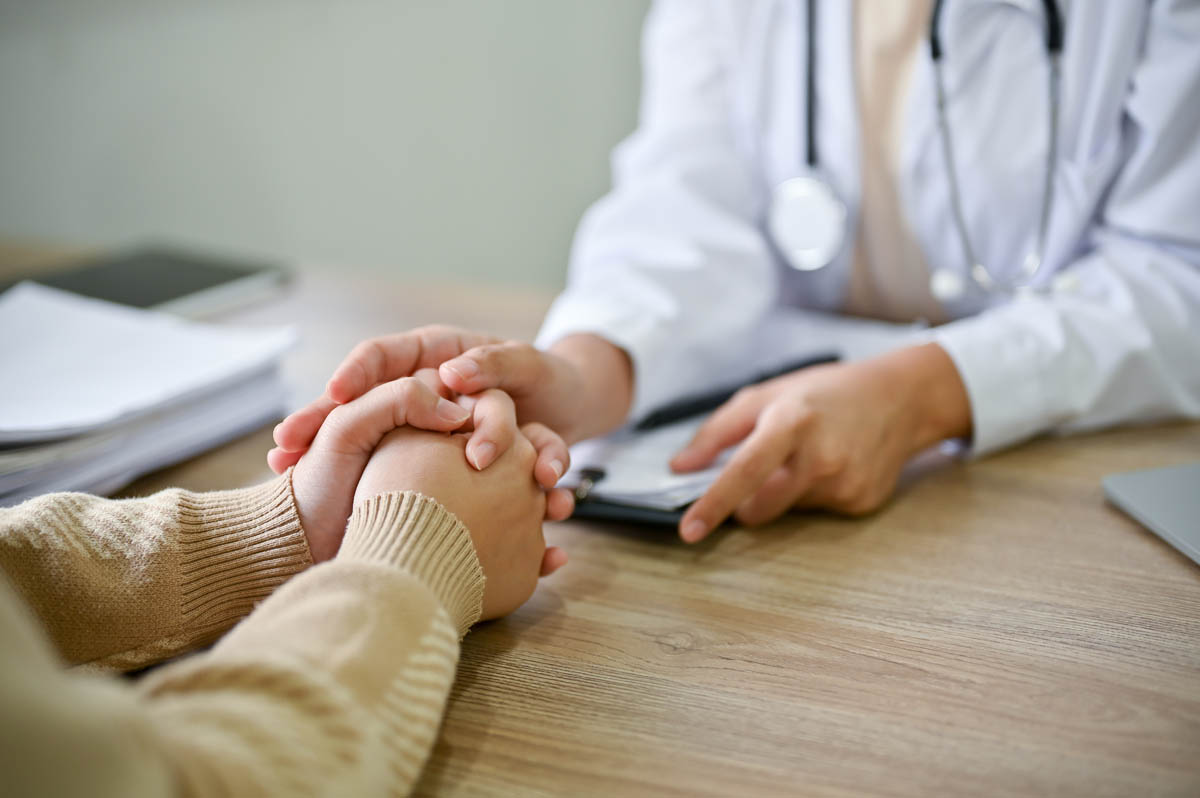Alcohol plays a complex role in relationships. While many couples enjoy occasional drinks together, alcohol can quickly transform from a social activity into a destructive force that undermines trust, communication, and intimacy. If you’re questioning whether drinking has become a problem in your relationship, you’re already recognizing important warning signs that deserve attention.
At 7 Summit Pathways in Tampa, Florida, we understand that alcohol affects not just individuals but entire relationship systems. Research shows that alcohol-related problems contribute to higher divorce rates, reduced relationship satisfaction, and increased conflict between partners. The good news is that recognizing these patterns early can help you take action before irreparable damage occurs.
How Alcohol Affects Relationships
Alcohol is a psychoactive substance that can radically change how we think, feel, and behave. When we drink, alcohol affects areas of the brain responsible for decision-making, impulse control, emotional regulation, and memory formation. These changes make it difficult to maintain the consistent, caring behavior that healthy relationships require.
People drink for various reasons in relationships: to relax after stressful days, to socialize and have fun, to cope with relationship difficulties, or to avoid dealing with underlying problems. When alcohol becomes the primary coping mechanism for relationship stress, it creates a destructive cycle that worsens the very problems it’s meant to solve.
Clear Warning Signs Drinking Has Become A Problem
Alcohol Takes Priority Over Your Partner
The clearest sign that drinking has become problematic is when alcohol consistently takes precedence over your relationship. This means choosing to drink instead of spending quality time together, planning most activities around drinking opportunities, or feeling irritated when your partner suggests alcohol-free activities. You might find yourself canceling plans with your partner to drink with others, or being physically present but emotionally unavailable due to drinking.
Arguments About Drinking Become Common
When alcohol becomes a regular source of conflict, it’s damaging your relationship. These fights often center on how much or how often you drink, money spent on alcohol, embarrassing behavior while drinking, or broken promises to cut back. If your partner regularly expresses concern about your drinking habits and these conversations turn into arguments, alcohol is likely harming your relationship.
Hiding Your Drinking Habits
Secrecy around alcohol consumption is a major red flag. This includes hiding alcohol in the house or car, lying about how much you’ve consumed, drinking before events to appear more sober, or having secret drinking sessions. When you feel the need to cover up your drinking patterns, it indicates the problem has progressed beyond casual use.
Financial and Behavioral Changes
Alcohol problems often create serious financial strain through excessive spending on alcohol, missing work due to hangovers, or legal costs from alcohol-related incidents. You might also notice personality changes like increased irritability, mood swings, becoming more aggressive, or losing interest in previously enjoyed activities.
Trust and Communication Breakdown
Perhaps most damaging is when alcohol systematically destroys relationship foundations. This includes repeated broken promises about drinking, inability to have honest conversations about alcohol use, your partner losing trust in your reliability, and defensive reactions when drinking is discussed.
Different Patterns of Problematic Drinking
Not all drinking problems look the same. Some people drink moderate amounts daily but find it difficult to stop, using alcohol to unwind after work every day or feeling anxious without daily drinks. Others engage in binge drinking, consuming large amounts on weekends or special occasions, sometimes to the point of blackouts or memory loss.
Functional alcoholism is another pattern where people maintain their work performance despite heavy drinking, appearing normal to outsiders while the relationship suffers. They often drink daily but hide the extent from others, using alcohol to cope with stress or anxiety.
What to Do If Alcohol Is Affecting Your Relationship
Start with Honest Self-Assessment
Before addressing the issue with your partner, evaluate your own drinking honestly. Ask yourself:
- How often do I drink, and how much?
- Do I use alcohol to cope with stress or negative emotions?
- Have I tried unsuccessfully to cut back?
- Has my drinking caused relationship problems?
- Do I feel guilty or defensive about my drinking?
Communicate Openly and Safely
If you’re concerned about your partner’s drinking, approach the conversation when they’re sober. Use “I” statements to express your feelings, focus on specific behaviors rather than personal attacks, and avoid ultimatums or threats. Listen without judgment and express love and concern for the relationship.
Establish Healthy Boundaries
Set clear boundaries around alcohol use, such as:
- “I won’t engage in arguments when you’re drinking”
- “I won’t cover for alcohol-related absences from work”
- “I won’t ride in cars with someone who’s been drinking”
- “I won’t attend events where drinking becomes embarrassing”
Seek Professional Help
Professional treatment is often necessary for lasting change. Options include individual therapy and counseling, couples therapy and relationship counseling, medical detoxification programs, intensive outpatient programs, medication-assisted treatment, and support groups.
Treatment Options in Tampa, FL
Couples Therapy
Couples therapy can be highly effective for addressing alcohol-related relationship problems. Benefits include improved communication skills, rebuilt trust and intimacy, better conflict resolution strategies, shared coping mechanisms, and mutual support for recovery.
Individual Treatment Programs
Sometimes individual treatment is necessary before couples work can begin. At 7 Summit Pathways, our comprehensive programs include assessment and evaluation, individual therapy sessions, group therapy participation, family therapy and education, and relapse prevention planning.
Flexible Outpatient Care
Our outpatient programs allow you to maintain work and family responsibilities while receiving care. These programs feature flexible scheduling, individual and group therapy, family involvement and education, continuing care planning, and peer support opportunities.
Building Healthy Coping Strategies
Recovery involves developing healthy ways to manage stress and emotions without alcohol, including:
- Regular exercise and physical activity
- Mindfulness and meditation practices
- Pursuing hobbies and creative interests
- Engaging in social activities that don’t involve alcohol
- Seeking professional counseling when needed
For couples who want to continue drinking safely, it’s important to follow recommended drinking limits, have several alcohol-free days each week, avoid using alcohol as a coping mechanism, maintain activities that don’t involve drinking, and communicate openly about alcohol use.
Support for Partners and Families
Supporting Someone with Alcohol Problems
If your partner has a drinking problem, educate yourself about addiction and recovery, attend couples therapy sessions when appropriate, and join support groups for family members like Al-Anon. Practice patience and understanding while taking care of your own mental health. Avoid enabling behaviors that allow drinking to continue, covering up consequences, trying to control their drinking, or giving ultimatums.
Local Tampa Support Resources
Tampa offers various support options including:
- Al-Anon Family Groups for family members
- Alcoholics Anonymous meetings
- SMART Recovery groups
- Celebrate Recovery programs
Crisis resources include the Crisis Center of Tampa Bay at (813) 964-1964, National Suicide Prevention Lifeline at 988, and SAMHSA National Helpline at 1-800-662-4357.
When to Seek Immediate Help
Contact emergency services or seek immediate help if you experience thoughts of suicide or self-harm, threats of violence or actual violence, severe withdrawal symptoms, alcohol poisoning, or complete breakdown of family functioning.
Important withdrawal warning: People who are physically dependent on alcohol can experience dangerous withdrawal symptoms. If you experience fits, shaking hands, sweating, hallucinations, or severe anxiety when stopping drinking, seek medical help immediately rather than attempting to quit suddenly.
Recovery and Relationship Healing
Recovery is a process that takes time and commitment. Early recovery focuses on physical and emotional stabilization, learning new coping skills, attending regular therapy sessions, and building healthy routines. Long-term recovery involves rebuilding trust and intimacy, developing new interests and hobbies, strengthening family relationships, and maintaining sobriety and relationship health.
Many couples emerge from addiction recovery stronger than before by developing deeper communication skills, building trust through consistent actions, creating new shared activities and interests, establishing healthy boundaries and expectations, and celebrating recovery milestones together.
Why Choose 7 Summit Pathways?
At 7 Summit Pathways in Tampa, Florida, we understand that alcohol problems affect entire families. We offer comprehensive care including individual, couples, and family therapy options, flexible outpatient programs that fit your schedule, an experienced team of specialists in addiction and relationship counseling, personalized local support for the Tampa Bay area, and proven, evidence-based treatments.
Take Action Today
If alcohol is affecting your relationship, waiting will only make things worse. The sooner you address these issues, the better your chances of saving and strengthening your partnership.
Don’t let alcohol destroy what you’ve built together.
📞 Call 7 Summit Pathways at (813) 212-8129 to speak with a specialist about relationship and addiction treatment
📍 Visit us at 1910 Orient Rd, Tampa, FL 33619 for a confidential consultation
🌐 Contact us online to learn about our couples therapy and addiction treatment programs
Your relationship deserves better. Take the first step today.
If drinking has become a problem in your relationship, professional help is available. 7 Summit Pathways in Tampa, Florida offers specialized treatment programs designed to heal both addiction and relationships. Contact us today to begin your journey toward a healthier, happier partnership.



